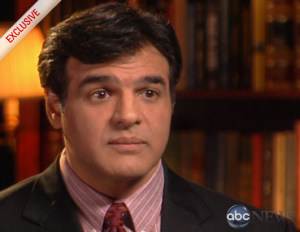 Last week, Congressman Jim Moran called on President Obama to pardon John Kiriakou, the former CIA officer imprisoned because he provided information that helped defense attorneys for Gitmo detainees confirm the identities of their clients’ torturers (the still-covert identities of the torturer was never made public). (h/t Steven Aftergood) In his statement on the floor calling for this pardon, Moran described Kiriakou’s role in confirming CIA’s role in torture.
Last week, Congressman Jim Moran called on President Obama to pardon John Kiriakou, the former CIA officer imprisoned because he provided information that helped defense attorneys for Gitmo detainees confirm the identities of their clients’ torturers (the still-covert identities of the torturer was never made public). (h/t Steven Aftergood) In his statement on the floor calling for this pardon, Moran described Kiriakou’s role in confirming CIA’s role in torture.
In confirming what the American media and policymakers were hearing whispered–that waterboarding and other enhanced interrogation techniques were a matter of standard military and intelligence procedures–he helped begin an intense and overdue debate over whether torture violated international law, tarnished our higher American principles and undermined the critical need for reliable, actionable information.
Just as important in Moran’s argument for a pardon, however, is his focus on selective prosecution.
The real issue here is the extremely selective prosecution of John and the ongoing efforts to intimidate him from talking about our intelligence community’s misfires. Even former CIA Director Leon Panetta now concedes he accidentally revealed classified information to the writer of Zero Dark Thirty, but faces no legal ramifications. Jose Rodriguez, the CIA’s former head of the Clandestine Service, admits to deciding without any legal authorization to erase videotapes of torture sessions so they could never be used in U.S. courts, but has never been forced to answer for this destruction of evidence.
This is a key point. Not only have Panetta and Rodriguez been free to share classified information in the name of defending torture, a slew of others have too. Even as torturers attempt to pre-empt the Senate torture report, critics have been warned not to speak to the press at all.
Moreover, this problem remains true across leak investigations. As we have noted, the government is attempting to prosecute Jeffrey Sterling with witnesses who themselves have improperly treated classified information (though the government is now arguing he shouldn’t be able to cross-examine those witnesses about their own mistreatment of classified information).
In a world in which only those leakers who criticize government abuses are prosecuted, you no longer have a law about classification: you have an arbitrary tool to enforce propaganda.
